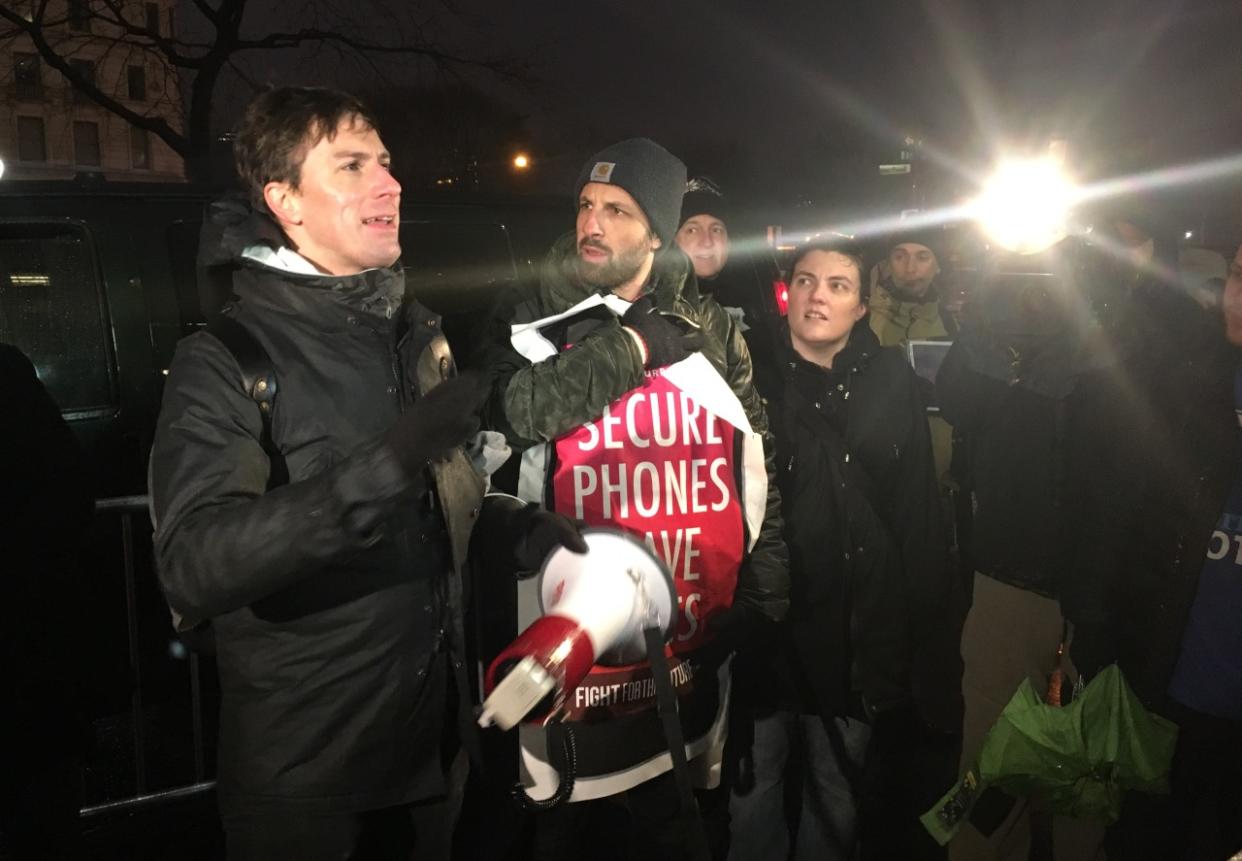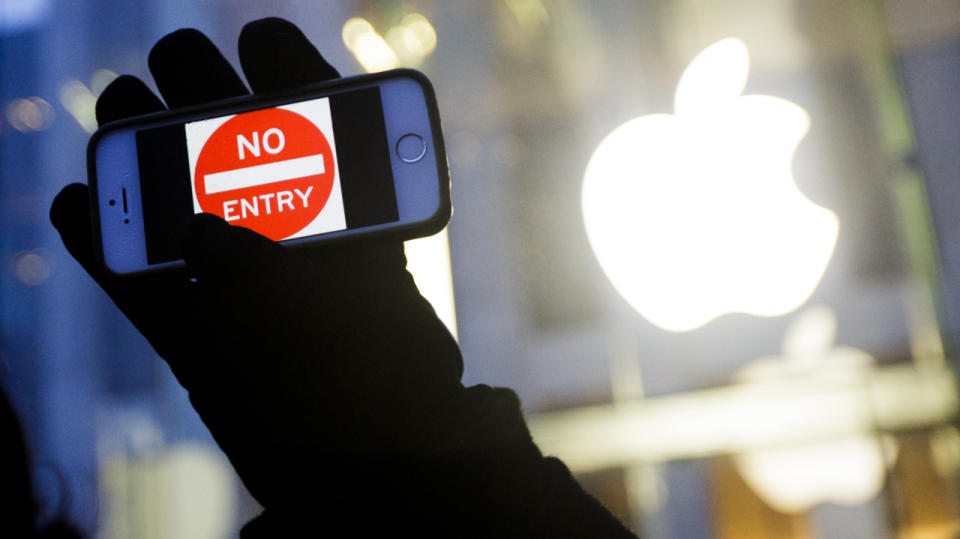Privacy activists rally to support Apple in encryption fight with FBI

Activists outside the Fifth Avenue Apple Store in New York City. (Alyssa Bereznak/Yahoo News)
Apple is known for the massive lines that form at its stores the day of a new product release, but yesterday afternoon it was a more meager crowd assembled outside the company’s flagship Fifth Avenue store.
“Don’t break our phones,” a group of about 17 people chanted outside the glass cube as blustery winds sprayed rain on their faces. Some held soggy signs shaped like iPhones that read, “Secure phones save lives.” Others held up their devices to display glowing “No entry” signs. Most people walking into the Apple Store barely noticed them.
The gathering, however modest, was one of nearly 50 small rallies that took place around the world — from Anchorage, Alaska, to London — Tuesday to demonstrate support for Apple’s legal battle against the FBI over keeping its phones encrypted.
Organized by the nonprofit online freedom group Fight for the Future, the multicity event took place just a week after a court ordered Apple to unlock an iPhone used by one of the San Bernardino shooters, who killed 14 people in a shooting spree last December. Apple CEO Tim Cook defied the request in a letter to customers the following day, sparking passionate public discussion in a debate pitting national security against personal privacy. The company has until Friday to file a formal brief opposing the court order.
Fight for the Future, known best for organizing blackouts on major websites to protest the 2011 Stop Online Piracy Act, began planning Tuesday’s event after seeing public reaction after the court order was announced. Within hours of notifying locals that they would hold a spontaneous rally at a San Francisco Apple Store, about two dozen privacy advocates gathered to show solidarity with the company.
“It was so clear that people were so concerned about this,” campaign director Evan Greer told Yahoo News. “And not just people who are hardened activists or tech geeks that focus on these issues, just average iPhone users who were concerned about their digital security.”

An advocate for privacy holds up his iPhone at a rally in New York City. (Photo: Justin Lane/EPA)
Slideshow: iPhone security protests >>>
But whatever enthusiasm Greer has seen, both her organization and Apple face an uphill battle in convincing the American public that this court order threatens the privacy features of all iPhones. According to a national survey released by the Pew Research Center on Monday, about 51 percent of Americans believe Apple should help the FBI unlock the San Bernardino shooter’s phone.
Meanwhile, public support for the company has been varied. While some tech giants have offered tepid approval of Apple’s decision to fight the court order, figures like Microsoft founder Bill Gates have suggested the company is being uncooperative. Similarly, most of the current presidential candidates have either come out against the Cupertino-based company or offered no viable solution to the conflict at hand.
David Moore, who led yesterday’s Fifth Avenue rally, emphasized that this issue should appeal not just to people in the tech industry, but to anyone who could potentially be targeted by law enforcement.
“The security that’s used by the iOS operating system has tremendous real-world value to all sorts of people,” said Moore, the executive director of the Participatory Politics Foundation, a nonprofit that encourages engagement with lawmakers. Among them: “People who have privacy concerns due to racial or sexual discrimination, people who have careers that advocate for human rights in other countries, or political organizers who are interested in making change and want to be able to communicate with their communities without the FBI having a backdoor to everything they type without due process and public accountability.”
But even those who’d come out to participate in the rally were unsure of how to appeal to a larger public with such complicated tech issues.
“I’ve read comments online where some people are, like, ‘I don’t understand what’s going on,’ and some person will reply by saying Apple has the keys to unlock this phone but they just don’t want to give them up,” Joey Mink, a 35-year-old New Jersey resident, told Yahoo News. “That’s a corrosive oversimplification that’s wrong, but how do you get all these people up to speed on this technology when they might not even be interested in it? I don’t know the answer to that.”

